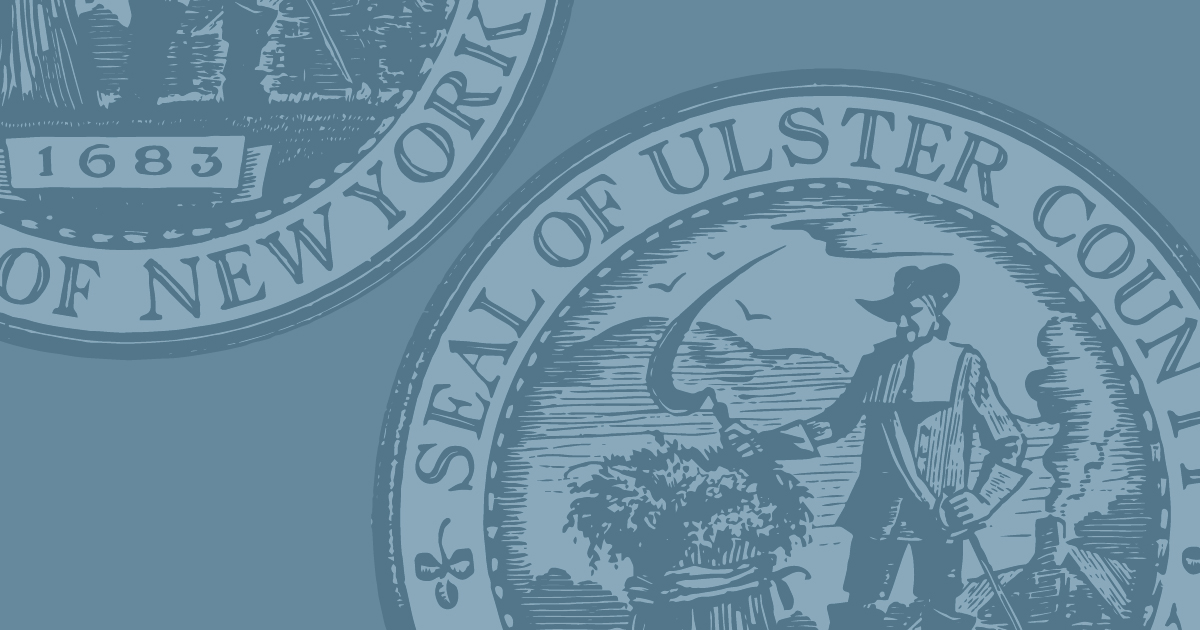As your comptroller, it’s my responsibility to let employees, residents and taxpayers know how things look as a result of the COVID-19 pandemic. We have gone from early April projections of a potential 10% budget shortfall of $34.5 million (which was unthinkable) up to a 15% shortfall of$50 million (which is catastrophic). This deficit is driven by potential sales tax revenue declines of 23.5% and cuts to state aid of up to 50%, and these numbers will continue to change with new information. Thus far, the federal pandemic stimulus has provided no support for counties the size of Ulster.
I recently suggested the furlough of up to 347 county employees who would make the same or more on unemployment. For example, employees earning $62,150 per year or less would make the same or more on unemployment, given the added $600 federal benefit through July 31. With new more drastic revenue shortfall projections, the furlough savings provide only a fraction of what we need.
To his credit, County Executive Pat Ryan enacted a spending and hiring freeze, seeking a 10% budget cut, in mid-April. The executive also proposed, and the county Legislature adopted, a voluntary separation/early retirement incentive package. These measures are good first steps, but they won’t be enough for the budget problems we now face.
Eligible employees have until Aug. 3, 2020, to express interest in retiring on or before March 31,2021. Retirements in mid-2021 will have no impact on the current 2020 budget and only a portion of 2021. Early retirements require a payout of accrued time, and the incentive package picks up a share of employees’ health care costs, so there is a corresponding cost to the savings. Stock market volatility during the pandemic has depleted retirement savings for employees. As a result of this uncertainty, eligible employees may hesitate to take advantage of early retirement.
Achieving an across-the-board cut of 10% of county departments may sound reasonable but is next to impossible. Most county spending is on programs mandated by the state, like Medicaid. Even cutting the 100 existing vacancies in county government will achieve only an approximate 1% cut to the county budget. Non-mandated portions of the county budget make up between 10% and 15% of the budget. Therefore, we would need to cut the entirety of the non-mandated portion of the budget or more to meet the cuts needed based on current revenue projections.
Non-mandated services like public safety, caring for our veterans and seniors, assisting businesses and protecting the environment define our sense of community. If anything, these services are seeing more volume during the pandemic. This would be a terrible time to make cuts to the sheriff’s road patrol, Office for the Aging, veteran affairs, economic development or Department of the Environment, but that is exactly what’s at stake in this severely challenged fiscal environment.
Our rainy-day funds will provide limited protection moving forward. Our spendable unrestricted fund balances at the close of 2019 were approximately $48 million. The 2020 budget factored in spending $12.5 million, leaving approximately $35.5 million in the fund balance and a $2.58 million tax-stabilization fund as our shock absorbers. Those will likely be completely expended in 2020, and that means 2021 will bring substantial cuts and property tax increases just when people in Ulster County can least afford it.
Without massive federal aid to make up lost revenues, we will have no choice but to cut non-mandated programs. Federal aid might not come soon enough or be big enough to fill the looming budget deficits.
Ulster County needs to treat every dollar of potential savings as precious. We also need to examine new revenue sources, such as raising our occupancy tax, increasing fees and fines, and taxing the property transactions of those moving here to escape more congested regions. But most importantly, let Rep. Antonio Delgado, Sen. Kirsten Gillibrand, Sen. Charles Schumer — and evenSen. Mitch McConnell and President Trump — know that we need federal aid and we need it now.






